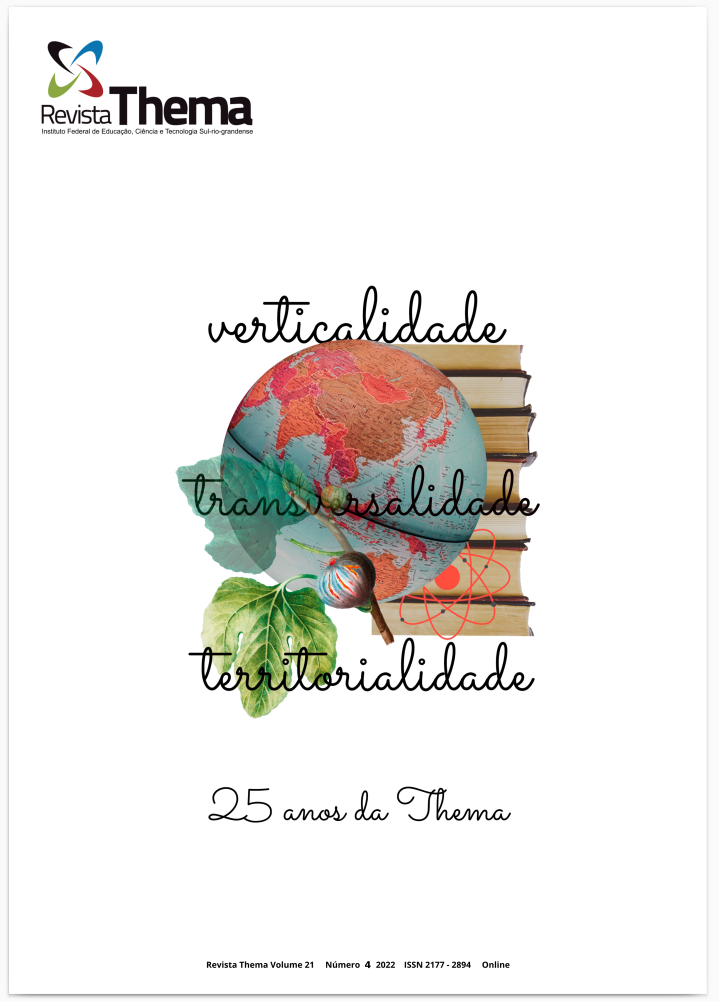Dicumba and Multiple Intelligence
estudo de caso na rede pública de Curitiba
DOI:
https://doi.org/10.15536/thema.V21.2022.1043-1058.2765Abstract
This research aims to present the multiple intelligence used by Basic Education students to develop research focused on their interest in the application of the Dicumba methodology, drawing up a relational profile between Dicumba and multiple intelligence. This methodology was applied to Basic Education students from three public schools in Curitiba, by teachers participating in the Pibid/Chemistry subproject; therefore, from the methodological point of view, the research presents an explanatory typology regarding the objectives, documentary regarding the procedures and qualitative regarding the approach to the analyzed data. The activities produced by the students from the Dicumba were analyzed having as structuring elements the multiple intelligence, allowing to establish relationships between intelligence and Dicumba. This research indicates which intelligence are most mobilized in each research that the student develops, the influence and importance of the teaching role in the development of Dicumba, as well as the need for guidance in carrying out activities and encouraging teachers to use different forms of presentation of activities.
Downloads
Downloads
Published
How to Cite
Issue
Section
License
O autor responsável pela submissão representa todos os autores do trabalho e, ao enviar o artigo para a revista, está garantindo que tem a permissão de todos para fazê-lo. Da mesma forma, assegura que o artigo não viola direitos autorais e que não há plágio no trabalho. A revista não se responsabiliza pelas opiniões emitidas.
A Revista Thema é de acesso aberto (Open Access), sem que haja a necessidade de pagamentos de taxas, seja para submissão ou processamento dos artigos. A revista adota a definição da Budapest Open Access Initiative (BOAI), ou seja, os usuários possuem o direito de ler, baixar, copiar, distribuir, imprimir, buscar e fazer links diretos para os textos completos dos artigos nela publicados.
Todos os artigos são publicados com a licença Creative Commons Atribuição-NãoComercial 4.0 Internacional. Os autores mantém os direitos autorais sobre suas produções, devendo ser contatados diretamente se houver interesse em uso comercial dos trabalhos.





